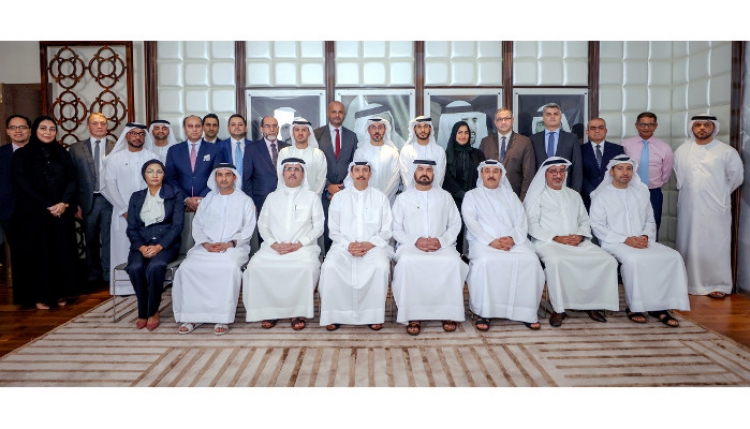Dubai - MENA Herald: Dubai Financial Market (DFM) today launched the draft of its “Standard on Hedging against Investment and Finance Risks”, the first of its kind all-inclusive standard on its website; www.dfm.ae. The exchange invited various Islamic Finance professionals to provide counsel and feedback on the standard. The consultation period will be concluded on 10 November 2016, as the final step prior to its official launch.
This standard is the newest addition to DFM’s Shari’a-compliant standards, following its launch of the Standard on Stocks in 2007 and Standard on Sukuk in 2014.
His Excellency Essa Kazim, Chairman of DFM said: “This significant step underlines DFM’s effective role in providing Shari’a-compliant standards considering the market’s status as the first Shari’a-compliant exchange globally since 2007. It also underlines our constant efforts to further strengthen Dubai's leading position as the capital of Islamic economy globally as part of the initiative launched by His Highness Sheikh Mohammed bin Rashid Al Maktoum, UAE Vice President, Prime Minister and Ruler of Dubai. This initiative has achieved tremendous successes on various levels, and Islamic Finance has been at the forefront since its launch early 2013.”
“DFM’s Standard on Hedging will provide an important reference for Islamic banks and financial institutions as we believe that such standards will further stimulate the rapidly growing Islamic Finance industry. For instance, the total value of Sukuk listed on Dubai capital markets has jumped from US$ 9 Billion (AED 33 Billion) in 2013 to US$ 44 Billion (AED 161.5 Billion) currently, which has positioned Dubai at the forefront amongst the leading Sukuk listing centers globally. To draft this standard, DFM’s Fatwa and Shari’a Supervisory Board has examined various aspects of the hedging concept and related standards as well as reliable Fatwas, and prepared this new Standard accordingly. We are looking for a strong involvement from Islamic Finance practitioners as well as Shari’a scholars during the consultation period in order to officially launch an all-inclusive standard that plays a key role in the development of the Islamic Finance industry,” H.E. Essa Kazim added.
Islamic Finance assets amounted to approximately US$ 2.4 trillion globally in 2015 according to statistics issued by international institutions and are expected to reach US$ 3.4 trillion by the end of 2018, with MENA and Asia accounting for a large part of that growth.
Dr. Hussein Hamed Hassan, Chairman of Fatwa and Shari’a Supervisory Board, DFM said: “The first of its kind standard on hedging of investment and Islamic finance activities represents a significant step towards further development and success of Islamic Finance. The comprehensive standard covers all types of investment and finance within Islamic finance institutions. The standard defines all types of risks according to their relevance and nature. It also sets parameters for the valid hedging instruments, explains these instruments and places a special emphasis on their underlying contracts. Furthermore, the standard details the relevant provisions, the undertakings and the direct hedging instruments. It also defines the possible Shari’a substitutes for conventional derivatives-based hedging instruments, asset-based hedging applications and hedging in currency exchange, in addition to hedging instruments used to manage liquidity or to protect against fluctuations in indices-based returns. Perhaps the most significant achievement of this unique standard is clarifying the rampant misunderstanding about the ability of Islamic banks and financial institutions to exercise hedging. In fact, it is a duty on Islamic banks and financial institutions to manage their risks efficiently and effectively. Besides, the standard introduces hedging instruments and mechanisms that would not compromise Shari’a rules and objectives.”
What is Hedging?
Hedging is a tool to mitigate or reduce risks, which makes it necessary to first analyze investment risks in order to identify their types and evaluate their magnitude. Secondly, it is essential to employ the appropriate mechanisms that would reduce risks as much as possible. In fact, this is the process that financial experts call “risk management.” Accordingly, hedging is permitted provided that the related risks are not necessitated by the nature of the transactions. The risk management must be conducted in due conformity with Shari’a methods and contracts with the aim of mitigating the risks that fall outside the nature of the transaction, not to eliminate these risks or isolate them from their related assets so as to turn them eventually into financial products used for risk trading.
In fact, the presence of some risks in some transactions is indispensable for the legitimacy of these transactions. This fact is demonstrated in the two Fiqh maxims: "Profits and risk-taking are interdependent” (al-kharaj bi-al-daman), i.e. one who bears the risk of loss of a transaction enjoys its potential profits, and "profit accompanies risk of loss" (al-ghunm bi al-ghurm). These two maxims, in fact, establish one of the fundamental principles of Shari’a in financial transactions that one must accept the risk of loss to earn legitimate profits.
Shari’a is well known for its assertion of evolution, development and growth in production. To Shari’a, work is an obligation and it urges participation in all activities expected to yield profits. As such, the Islamic Shari’a provides a well-balanced and just financial system, which if well followed, and if its legal requirements are well fulfilled, can form a mechanism for a spontaneous reduction of risks whereby all partners justly and fairly share the risks.




